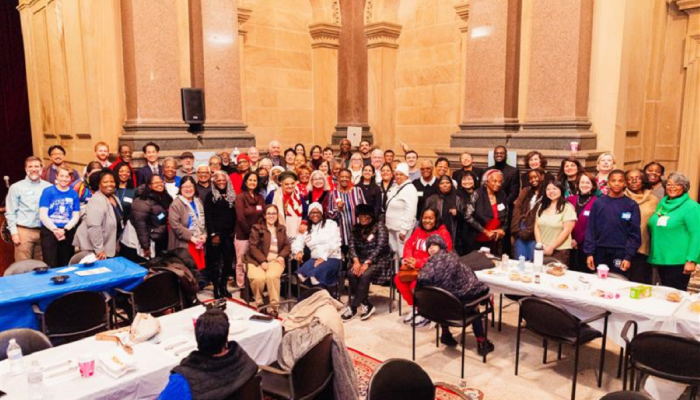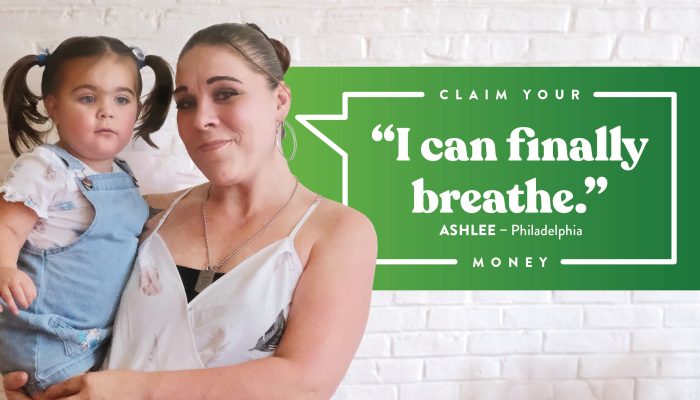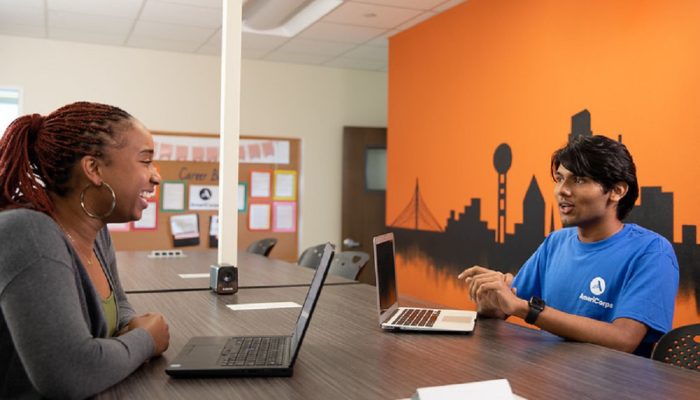This post was written by William Hall, director of Financial Inclusion with the Office of Community Empowerment and Opportunity
There are many reasons most Americans support student loan forgiveness and easing the repayment of loans. One that should be more widely celebrated is that it’s an investment in equity and opportunity.
As of President Biden’s announcement last month authorizing student loan forgiveness of up to $10,000 and up to $20,000 for Pell Grant recipients, roughly one in three borrowers had federal balances under $10,000, and 53 percent of borrowers had balances of less than $20,000. That means that the forgiveness will have a significant impact on most student loan borrowers. But it’s not just important because of how many people will be impacted, who specifically benefits is significant too, particularly in our city. In Philadelphia, in neighborhoods where the median household income was less than $50,000, the median student loan balance was less than $20,000, making the impact of student loan forgiveness most felt in those communities where budgets are stretched thin.
Due to centuries of systemic racism that have driven significant racial wealth gaps, Black student loan borrowers are more likely to have higher student loan balances and higher monthly payments than their counterparts. In fact, 20 years after first enrolling in school, the typical Black borrower still owed 95 percent of their original student debt compared to 6 percent for a white borrower, according to a 2019 study. This means Black students who attend college typically have less disposable income to purchase homes, start a family, and invest in their children’s education, which continues a cycle of debt. That makes the President’s elevated forgiveness of $20,000 for Pell Grant recipients particularly important to closing the U.S. racial wealth gap since Black students are twice as likely as white students to be the recipients of Pell Grants and 93 percent of all Pell Grant recipients come from households making less than $60,000 each year.
Student loan forgiveness will also positively impact those without a college degree, contrary to what some critics say. As many as 40 percent of those who borrow money to attend school failed to obtain a bachelor’s degree within six years, which means many borrowers have debt but no degree to enhance their incomes. This holds true for many in Philadelphia. For example, in the 19132 zip code, over 29 percent of residents have student loan debt but fewer than 13.3 percent of adults have a bachelor’s degree.
Higher education is still important when it comes to earnings. On an individual basis, the median lifetime income for individuals with a bachelor’s degree is 40 percent to 133 percent higher than those without a bachelor’s degree. While many argue that higher earners should satisfy their debts without cancellation, such thinking is myopic. This country has a significant history of loan forgiveness and financial “bailouts” for corporations and the wealthy and relieving the debt burden of college graduates, particularly the most vulnerable borrowers, is at least as important an investment. As paying for college becomes more expensive, it disincentivizes people from attending college and we need more college graduates, not fewer.
The Office of Community Empowerment and Opportunity’s mission is to provide leadership on issues of economic justice by advancing racial equity and inclusive growth to ensure that all Philadelphians can share in our city’s growth and success. In 2019, our office sponsored a series of events entitled “Economic Mobility: Earn, Keep, Grow.” Those events highlighted that all Philadelphians cannot share in this city’s prosperous future without earning a decent income and using that income to build wealth. To have money to invest, Philadelphians need to keep more of it, and that means being able to obtain the degree that will lead to a decent salary without sacrificing all that they’ve gained to a lifetime of student loan payments.




